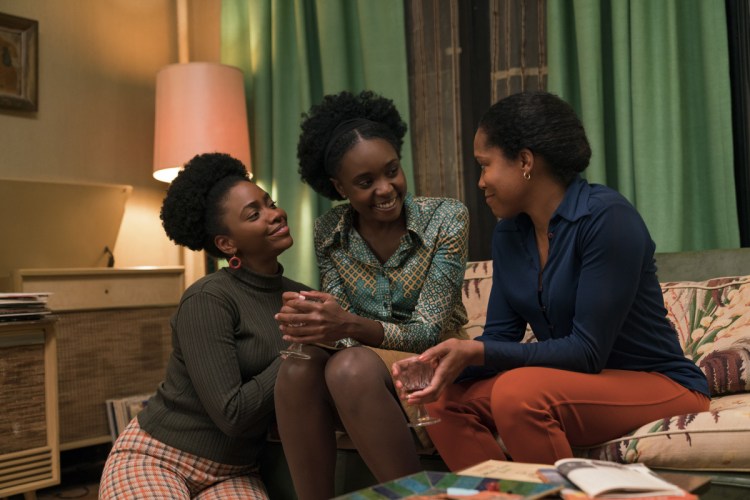Director-writer Barry Jenkins, of whom I am not a devoted fan, is still clearly a talented director. “Moonlight” was a film that, despite Mahershala Ali’s, expertise left me cold in the dark. Still, it won Jenkins his Oscar for the 2016 film. It happens. I’ll live with it.
But then some of the same feeling came over me in Jenkin’s latest effort, “If Beale Street Could Talk,” taken from the great American writer James Baldwin’s book (which I regret not reading) based on black life on the troubled streets of Harlem in the 1970s.
Alonzo “Fonny” Hunt (Stephan James of “Selma”) and Tish Rivers (KiKi Layne of “Native Son”) are presented as the star-crossed, mean street Romeo and Juliet, who met when they share a bathtub as babies. They grow in love, clinging to one another as they make their way through the broken glass and hearts of the streets of Harlem.
In laying out his screenplay adaptation, Jenkins gives us a baffling flutter of flashbacks, with multiple closeups of loving looks, hand holding and passionate embraces.
It becomes clear from moment one that Alonzo is, despite his sweetness and love for his soulful sweetheart, a boy of the hard streets. James, always a good actor, delivers a lot of power here.
His lovely Tish glows with a light of childhood innocence so bright that when the inevitable darkness falls, we crash along side her. Layne skillfully makes that happen.
The crash, of course, is a very much expected pregnancy, the result of a dismally long and sad seduction scene where, in Alonzo’s shabby dwellings, he soils his darling’s almost saintly innocence. This moment failed to charm me.
Tish’s parents take the news with calm acceptance and then joyfully break out a bottle or two and invite Alonzo’s family — a nice-guy daddy (Michael Beach), mother and sisters — for a party.
Alonzo’s mother, (a wonderful Aunjanue Ellis) a “Holy Roller” devoted to her faith and errant son, has long been afflicted with a snobbish disdain for Tish’s parents, (Regina King and Colman Domingo) two sweet happy go along-get along survivors. This won’t go well.
The occasion drags through a long passage of ancient grievances, dirty looks and snarling words and ends with Alonzo’s father smashing his wife to the floor. Good times had by all.
Alonzo, cruelly blessed with artistic gifts and sweetness of heart but lacking even a teaspoon of good sense, is suddenly swept up in a gutter of swirling bad luck. Falsely accused of rape by a Puerto Rican neighbor and racist cop, he is sent to prison.
The legal defense and a foolish trip to Puerto Rico by Alonzo’s mother drains the family’s resources, and our patience, when the girl Victoria Rogers (Emily Rios) vanishes from the city, leaving all players in limbo.
Jenkins is blessed with a splendid cast who bring their gifts to their scenes, but what you’ll leave the theater with is the remembrance of the stunning moments conjured up by the wonderful Regina King (“American Crime,” “The Leftovers”). King lights a candle in whatever darkness she finds herself in.
The film ends as I imagine the great Baldwin wrote it, unrelenting and knife-edge sharp. The last scene between our lovers ends in a cruel urban nativity scene framed in a green-walled jailhouse lounge, where they share bagged food from a vending machine while their 6-year-old son colors a picture with a crayon. And the beat goes on.
Send questions/comments to the editors.




Comments are no longer available on this story